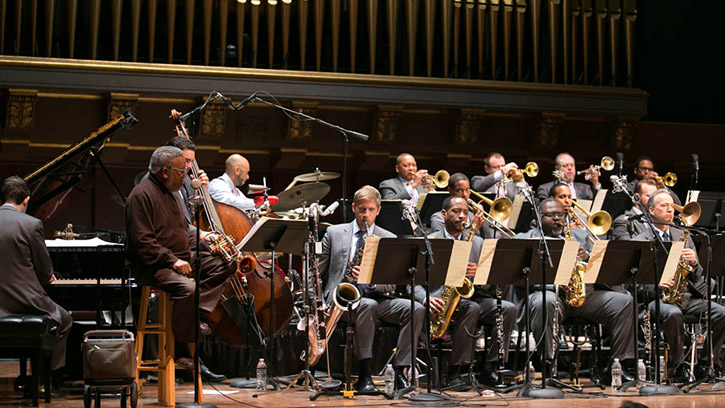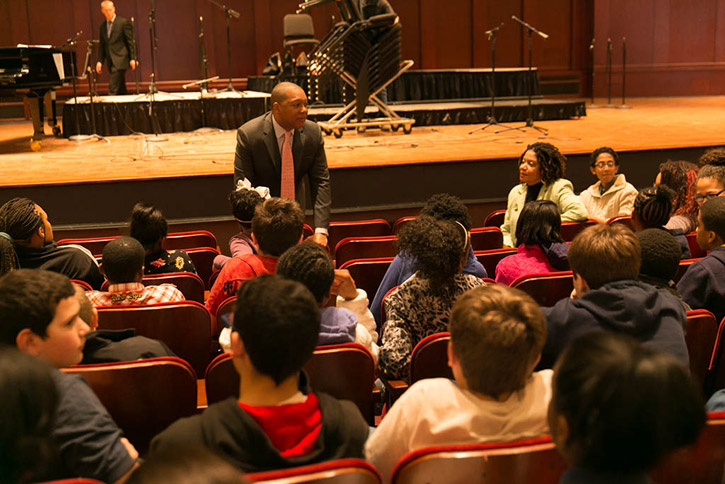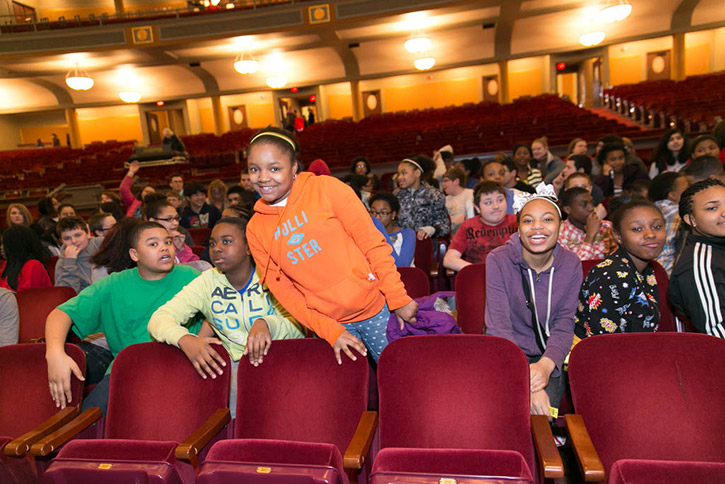Student Spotlight: Teagan Faran at Jazz at Lincoln Center Orchestra
This post is part of a series of posts by students who are part of our 21st Century Student Internship program. As part of the paid internship program, students spend several weeks with a company that’s on the UMS season.
U-M student Tegan Faran was paired with the Jazz at Lincoln Center Orchestra in Summer 2016. The group returns to Ann Arbor with pianist Chick Corea on March 31, 2018.


Left: A sunny day in NYC is well spent exploring Central Park. This was a favorite spot especially thanks to the nearby Dominican ice cream vendors. Right: Serenaded by 2 students of JALC’s WeBop Class learning about the instruments of a jazz band. All photos by Teagan Faran.
New York City is beyond famous. A museum on every corner, neighborhoods full of culture from every corner of the world, everywhere you look the Big Apple is the supreme destination for any tourist. Anyone staying in the city any longer may notice other (un)endearing traits: over-friendly rodents, the same faces camping out on the same subway stairs night after night, that very distinct aroma of over 8 million people sharing the same space. Amidst this wild jungle of life, though, an organization stands as the obvious crown jewel of NYC: Jazz at Lincoln Center. Overlooking the Central Park entrance at Columbus Circle, J@LC works to enliven an American art form, unite the people of NYC, and simply bring joy to as many as possible.


Left: fellow intern Kristina and I demonstrate the props for Essentially Ellington Festival’s social media booth. Right: Watching overhead as Wynton Marsalis directs a JLCO rehearsal.
Having only been in Manhattan for a single weekend before this summer, I had no clue what I was getting myself into when I stepped off the plane at LaGuardia. All I can say is that Manhattan truly lived up to its reputation of being a wild place to live!
I began my internship with the Education Department right as the fantastic whirlwind that is their Essentially Ellington Festival started up. The festival is the finale of the year-long program that Jazz at Lincoln Center has put together. Inspired by the idea that jazz should belong to everyone, J@LC has made numerous amateur-level jazz band scores available to schools all over the world. Schools that wish to compete in the Festival can send in a recording of their band playing some of these charts. From all these applicants, fifteen get to travel to New York to compete. The weekend is so much more than a competition, though; each day the students and teachers were immersed in the culture of jazz. Late night jam sessions, workshops with JLCO members, and a chance to perform in Frederick P. Rose Hall – these students truly got the treatment for this weekend!


Left: The majority of a successful show takes place backstage. Monitors in the back hallway track the artists on the Appel Room stage. Right: A performance in the Appel Room gives the audience two shows: musicians on stage and the city that never sleeps through the window.
It was my job to make sure that all of this happened smoothly. I was given a walkie-talkie and a brief tour of back stage before being set off into the crowd of excited students. I began by ushering a band from Utah over to their classroom for their first coaching with a JLCO member. I sat in the back of Dizzy’s watching the band rehearse and listening to Sherman Irby’s carefully thought-out critiques and encouragements. All the while, happy and nervous parents paced the back of the hall, telling me all about how hard the band had worked to prepare for the festival. The bands were also encouraged to get to know each other better throughout the weekend, and by the time the final ceremony ended, Rose Hall was filled with an obvious air of camaraderie and love.


Left: Speaking with the effervescently kind Cat Henry, VP of Concerts and Touring, about a career in arts administration. Right: I was lucky to meet Erika Floreska, former UMS employee, who now runs a community music school in Manhattan.
While all of this was happening, I was simultaneously discovering just what it took to live in Manhattan. Troubles with my housing situation led me to staying in about eight or nine different places in my seven and a half weeks in New York (forgive me, if I’ve lost track of the exact number!). I began to figure out which streets to avoid after sunset and learned how to avoid persistent cat-callers. Ever caring, however, my supervisors in the Education Department took me under their wing and helped to lessen the learning curve of Manhattan life. And this is what made my internship and this organization so incredibly noteworthy: the people behind the idea.


Left: Wherever you turn in NYC, there is ample opportunity to be a tourist. Looking back on Manhattan, the sun breaks past the World One Observatory. Right: My home for two months at Columbus Circle.
Rewind for a second, back to my very first day with J@LC. I was sat down in a conference room and given a large stack of papers – some to sign, but mostly to read. In these packets were the words written by Wynton Marsalis about this very organization. “The mission of Jazz at Lincoln Center is to entertain, enrich, and expand a global community for Jazz…we believe Jazz is a metaphor for Democracy…it inspires us to face adversity with persistent optimism,” reads the organization’s mission statement online. The packet I was given included Mr. Marsalis’s expanded ideas on this topic and his guidelines for how J@LC is to be run. I heard it said at some point that he runs the office in the same way he runs a rehearsal: everyone is responsible for their own ideas and strategies, but all are working towards the common goal.


Left: Band members and parents file past for the 2016 Essentially Ellington Competition. Right: A city saturated in culture! I enjoyed walking from Columbus Circle to see shows by the American Ballet Theatre and the New York Philharmonic at Lincoln Center.
Manhattan is loud in a busy, noisy, smelly way, and a person begins to look for quiet wherever she can find it. Identifying your favorite patch of grass in Central Park, ducking into that French bookstore to admire the constellations on the ceiling, or grabbing a dollar ice cream scoop from the Dominican shop on the corner, these all make for great meditation. My absolute favorite place in Manhattan, however, has to be the backstage hallway leading to the Appel Room. One of J@LC’s main stages, the Appel Room sets the band up with a glass backdrop that opens to a view to Columbus Circle in all its mayhem. As the band swings, taxis stream by and tiny people scurry across the crosswalk beneath. It was here that I spent my first weekend in the Concerts and Touring department.
Acting as a musician’s assistant, I got exposed to the behind-the-scenes world of making sure all the artists had water and towels and any other necessary commodity in order to ensure their best performance. The most important part of my time with Concerts and Touring was not the quick trips to Whole Foods to buy backstage snacks or the in-office historical work, but rather the opportunity to join in this “jazz family.” Every single person I met was so immediately ready to be a close friend and an ally. Even after the show ended, I would run into musicians on the subway and be greeted by a warm hug and a smile. A few of us even ended up at one of the free Concerts in the Parks programs, determined to hear greats such as McCoy Tyner in person. As we walked to the park, we saw the clouds getting darker but pushed onward anyhow. Even as the rain began to pour down, we laughed and grooved along to the musicians on stage. Afterwards, we wrung out our jackets on the subway and laughed together about the concert.

Photo: A life changing show by Christian McBride at the famous Blue Note jazz club.
The idea of the Jazz Family came out in full form one bright, Sunday afternoon as the JLCO gathered a crowd to remember the Great Joe Temperly. A stoically happy occasion, the JLCO and students of Mr. Temperly came together to share stories and treat everyone to a New Orleans-esque jam in honor of the late tenor saxophonist. Though the room was full of strangers, this music truly united everyone present. This is what J@LC exemplifies in their work every single day.
I am beyond grateful to the UMS and to Jazz at Lincoln Center for this internship opportunity. There are so many more stories that I would love to share about my time in New York City, but I can say one thing for sure: the level of inspiration and brotherhood that I experienced this summer can be experienced every time the JLCO hits the stage. They are a truly magical ensemble and organization.
This Spring, welcome back to Ann Arbor, JLCO, we are so excited to have you here.
See the Jazz at Lincoln Center Orchestra with Chick Corea on March 31, 2018.
Updated 6/2/2017
School Day Performance with JLCO
The Jazz at Lincoln Center Orchestra and Wynton Marsalis return to Hill Auditorium on March 4, 2016.
The orchestra and Wynton Marsalis have visited Ann Arbor many times since their debut in 1994, and during our 2013-2014 season, the musicians received the UMS Distinguished Artist award. This group is special not only because of their superb music making; the orchestra’s dedication to education programs is also remarkable.
Check out these photos from a School Day performance during our 2013-2014 season. The orchestra on stage:
Wynton Marsalis chats with students after the performance:
Happy students in the auditorium:
Photos by Mark Gjukich Photography.
Last updated 4/29/2016.
Interview: Ford Honors Program featuring JLCO and Wynton Marsalis
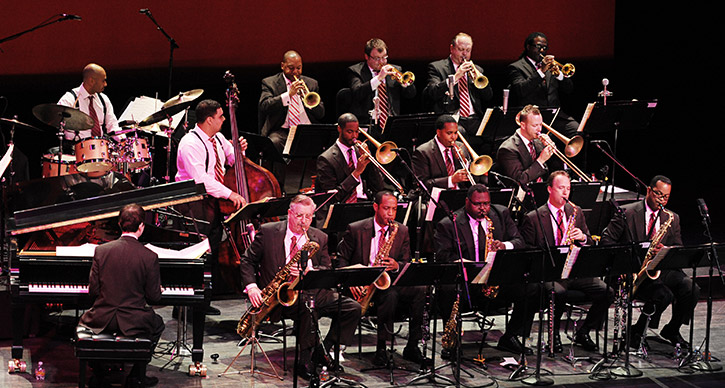
Photo: Jazz at Lincoln Center Orchestra and Wynton Marsalis in concert. They’ll perform in Ann Arbor on March 30, 2014. Photo by Frank Stewart.
Each year, the UMS Advisory Committee (an organization of over 60 volunteers who contribute over 7,500 hours of service to UMS each year) works together with UMS staff on the UMS Ford Honors Program Gala. FHP is our annual benefit that supports UMS’s Education & Community Engagement Program, which provides free or low-cost education and community engagement activities focusing on K-12 students, teachers, teens, university students, families, adults, and cultural communities. Funds raised from the Gala make it possible for UMS to impact nearly 20,000 youth, educators, and community members each season.
This year, we’re excited to honor Wynton Marsalis and the Jazz at Lincoln Center Orchestra, artists who have a long history with UMS, and also a deep commitment to education.
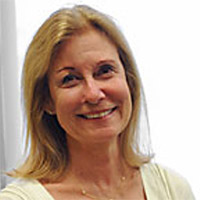 We sat down with Cheryl Cassidy, who’s leading the FHP efforts this season. Cheryl is a resident of Ann Arbor and a professor in the English department at Eastern Michigan University.
We sat down with Cheryl Cassidy, who’s leading the FHP efforts this season. Cheryl is a resident of Ann Arbor and a professor in the English department at Eastern Michigan University.
Caroline Kagan: What are you most excited about in this year’s program?
Cheryl Cassidy: I’m always excited about Ford Honors. We have been going, my late husband and I, and my daughter also, for the past thirteen, fourteen years. For me and for my family it’s always been a really exciting thing to be with people who are interested in the arts and to be a part of that community.
Of course I’m excited this year because Wynton Marsalis is just such a stellar performer. To be part of planning the whole thing is exciting, too. It’s fun, and it’s nice to be a contributor in a way that is very meaningful.
CK: Have you attended Jazz at Lincoln Center Orchestra and Wynton Marsalis performances in the past? If so, what do you like about them?
CC: You know, I thought about this question, and I was trying to think, what is it? I think a part of it is that not only does Wynton Marsalis excel at what he’s doing in his art, but he also has this very uncommon ability to transcend his medium. He goes beyond what’s predictable, in terms of musical boundaries, as does the Jazz at Lincoln Center Orchestra. Along with that there’s this inclusivity that happens, so that the audience and the performers feel a part of the whole experience. That’s both a very fragile and a very unusual thing.
Secondarily, I’m excited because Wynton Marsalis and the Jazz at Lincoln Center Orchestra have such an impact on our community. They’ve created possibilities for educational experiences for students, particularly those students who, under normal circumstances, would not be able to attend a concert like this. Of course the donors for this performance and gala are then supporting the continuation of those educational programs.
CK: Related to that thought, what do you think the Ford Honors Program brings to the community at large?
CC: I think the Ford Honors Gala in general and this particular performance and honoree in particular really reflect our community’s devotion to the arts. It’s not just a singular devotion. I think it’s very multifarious. In other words, it includes universities like the University of Michigan and Eastern Michigan University, the community in Ann Arbor, Ypsilanti, and beyond in the region. Wynton Marsalis and the JLCO really appeal to a great number of people. The gala reflects our commitment and our devotion to these stellar performers and indicates how much we value their creativity and how it enriches our lives.
CK: You also chaired the committee that planned the 2006 Ford Honors Program, which honored jazz pianist and composer Dave Brubeck. What did you learn from that experience, and how have you incorporated those insights as you plan for this Ford Honors Program?
CC: I think the most important thing that I learned and that I experienced was the importance of having a really good team, a team of people who are dedicated and who are highly invested in the event, and we’re very lucky to have a great team working on this year’s FHP.
CK: Now I’m going to ask you a very hard question. Why do you support the arts?
CC: That is a hard question and that involves so much emotion. I think that for me, personally, the arts really enrich my life. And I think that the arts are part of how we are human. We have to incorporate the arts into our lives, because that makes us better people, better community members, better people in the world, because the arts transcend cultures. They are for the world and for everyone.
I buy into all that, but I think also my late husband was just fiercely devoted to UMS. He wanted to go to every concert and I sort of had to say, “We can’t do it all!” He was really a person who treasured the idea that UMS was here in Ann Arbor, as do I. So I’ve been very conscious of that legacy, as has my daughter, and I think that’s part of it as well.
Interested in learning more about this year’s Ford Honors Program? Visit our FHP event page where we’ll keep the most up-to-date information about the gala.
Educator Conversations: Jazz at Lincoln Center Orchestra with Wynton Marsalis
Editor’s note: This post is a part of a series of conversations between educators in the K-12 community. Educators will offer suggestions and answer questions about integrating UMS School Day Performances or the arts into classroom curriculum, as well as share advice on organizing a field trip to UMS. To volunteer to be a Teacher Lobby Moderator e-mail umsyouth@umich.edu. Or, check out other Educator Conversations.
This week’s questions:
- What does Jazz music have in common with the music of Mozart and Haydn?
- How does Jazz music reflect the values of African-American culture from which it came?
- How do you find yourself improvising in your life?
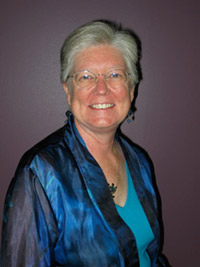 This week’s moderator: Linda Jones. Linda has taught music, math and media in the Ypsilanti Schools from 1999 to 2012. She is currently director of the Ann Arbor Civic Chorus. She has taught jazz history, composition, improvisation and performance as well as acting and creative movement at the elementary level and collaborated with bassist Paul Keller, drummer Sean Dobbins, and pianist Ellen Rowe. She has training as an Orff Music Educator and currently serves as Treasurer to the Greater Detroit Orff Schulwerk Association. She has presented workshops on Jazz improvisation and Composition through Garage Band.
This week’s moderator: Linda Jones. Linda has taught music, math and media in the Ypsilanti Schools from 1999 to 2012. She is currently director of the Ann Arbor Civic Chorus. She has taught jazz history, composition, improvisation and performance as well as acting and creative movement at the elementary level and collaborated with bassist Paul Keller, drummer Sean Dobbins, and pianist Ellen Rowe. She has training as an Orff Music Educator and currently serves as Treasurer to the Greater Detroit Orff Schulwerk Association. She has presented workshops on Jazz improvisation and Composition through Garage Band.
Q: What does Jazz music have in common with the music of Mozart and Haydn?
They both use western harmonic progressions, they both use the same instruments, especially percussion, winds and brass and bass violins. They both have soloists and ensembles. Improvisation is at the heart of Jazz and traditionally there was also improvisation in Baroque performances.
What else can you add to this list?
Q: How does Jazz music reflect the values of African-American culture from which it came?
Everyone has a voice and contributes equally to the ensemble.
Everyone has a chance to shine and show their individual talent.
Collaboration is very important.
Lyrics reflect the reality of life, the loves and struggles, the hope and the suffering.
Talent is mentored and held to a high standard.
Rhythm is the basis of music that cooks, this rhythm flows through all of African-American life.
What else would you include in this list?
Q: How do you find yourself improvising in your life?
I find that teaching is filled with chances to improvise. Lesson plans are only an outline, the craft is in fitting those plans with the needs of the learners present on that day. Any time I am leading a choral rehearsal, I am improvising wildly as I find ways to help the choir improve. Driving also presents plenty of chances to improvise, especially if different routes are possible to get to the destination.
How do you improvise?
Do you have questions or comments for Linda about his approach to this performance or about teaching through performance more broadly? Share your responses or questions in the comments section below.
New! Educator Conversations
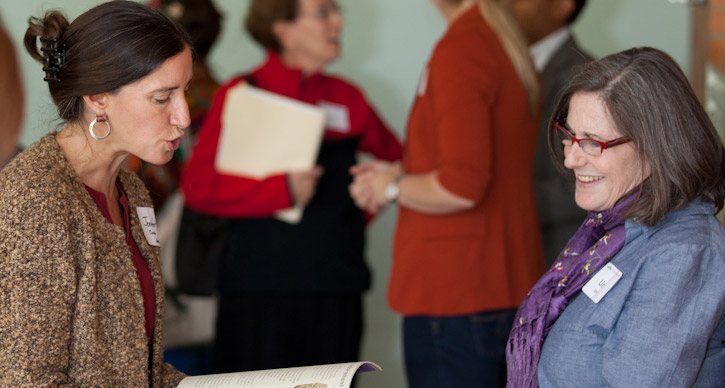
Photo: Emerson School educator Jennifer Tanau and UMS Advisory Committee member Linda Spector at a UMS reception for teachers. Photo by Mark Gjukich Photography.
This season, look for Educator Conversations on UMS Lobby.
Educators will offer suggestions and answer questions about integrating UMS School Day Performances or the arts into classroom curriculum, as well as share advice on organizing a field trip to UMS. To volunteer to be a Teacher Lobby Moderator e-mail umsyouth@umich.edu.
Educator Conversations will take place around UMS School Day Performances. As soon as the conversations are live, we’ll include a link on this page.
- Hubbard Street Dance Chicago with Melissa Poli (Performance September 27)
- Ukulele Orchestra of Great Britain with Katie Ryan (Performance November 12)
- Brooklyn Rider with Emily Barkakati (Performance November 25)
- One Night in Bamako with Jeff Gaynor (Performance February 7)
- Compagnie Käfig with Dianne Dudley (Performance February 13)
- Pedrito Martinez Group with Dan Tolly (Performance March 14)
- Jazz at Lincoln Center Orchestra with Wynton Marsalis with Linda Jones (Performance March 31)
Share you questions or comments below.


